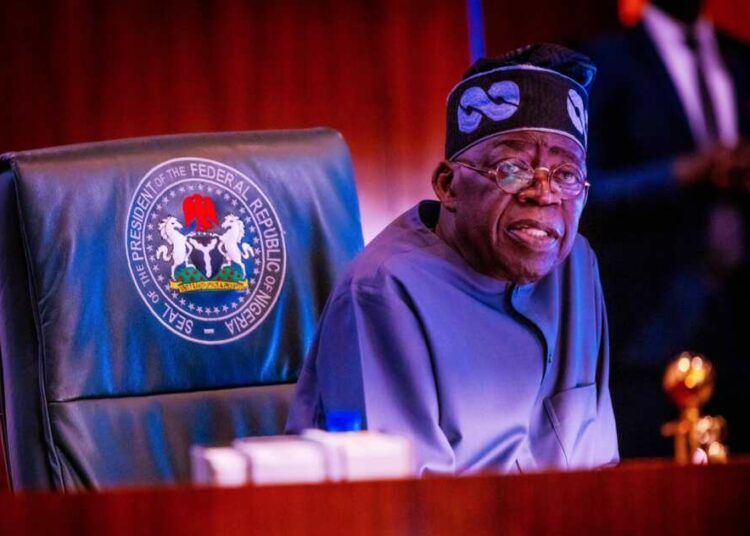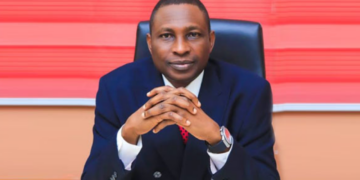The administration of President Bola Ahmed Tinubu, since inception, has introduced some reforms in the tertiary education sector, especially the university system. The most significant of these reforms is the student loan scheme. In like manner, the administration has embarked on the establishment of more universities across the country.
Apart from the ones initiated by the executive arm of government, members of the National Assembly (NASS), particularly senators, have introduced bills for the establishment of universities in their constituencies. Some of the bills have been signed into law by the president. The administration has also taken over state universities and upgraded some colleges of education to universities.
President Tinubu has particularly created some universities for certain ethnic groups believed to have been marginalised by previous administrations. On the other hand, senators have stridently pursued the establishment of universities in their constituencies to the extent that some states now have two or more federal universities.
Also, some serving and non-serving senators have set up private universities, while those who cannot, want federal universities in their senatorial districts by all means. If this crave for federal universities is not controlled, Nigeria may end up with a university in each of the 109 senatorial districts in the country.
In our thinking as a newspaper, most of these new universities are not driven by the need to expand access to tertiary education at that level but by political expediency.
Records at the National Universities Commission (NUC), the sector’s regulator, showed that there are a total of 283 universities in Nigeria. Of this number, 69 are federal, the states have 66, and 148 are privately-owned. Even with this number of universities, over 75 percent of candidates seeking admission into tertiary institutions fail to secure placement every year.
It is this admission gap that promoters of additional universities use in their demands. Though this reasoning appears germane, we consider it not satisfactory and good enough to build more universities when the existing ones are under-utilised and some in deplorable condition.
The existing schools are reportedly poorly funded, lack basic facilities like water, electricity, and operate in overcrowded classrooms to the extent that students stand by the windows and corridors during lectures. The libraries are archaic, and the lecturers lack suitable offices and staff quarters.
The laboratories for science and medical students are an eyesore and unsuitable for research, learning, and teaching. They are far from current global standards and best practices.
This accounts for why Nigerian universities no longer attract international students and scholars unlike the post-Independence era when the country’s citadels of learning were centres of excellence sought after by foreign students and lecturers.
It should be noted that the endless strikes embarked upon by the Academic Staff Union of Universities (ASUU) were largely caused by the failure of the government to honour agreements with the lecturers since 2009 till date on issues like adequate funding and other exigencies.
ASUU has repeatedly cried out over the non-release of funds for the revitalisation of public universities; non-release of subventions to state universities by their visitors, and non-payment of staff salaries. The union has equally accused the government of refusing to pay Earned Academic Allowances (EAA).
It is on this premise that we are opposed to the government’s continued establishment of new universities. We are persuaded to argue that the main reason for the creation of the additional universities is not to increase access to higher education, as Nigerians are made to believe. It is more about an effort to massage the ego of the promoters.
The reality on the ground is that the existing universities are in dire straits as a result of under-funding, obsolete infrastructure, and a lack of qualified lecturers.
This has resulted in a decline in the standards of teaching, research, and learning, which in turn, has led to the production of half-baked graduates who are ill-equipped to compete in the global job market.
We are disturbed that instead of addressing these fundamental issues, which have turned our universities into glorified secondary schools, the government has resorted to establishing new ones in an attempt to score cheap political points.
We dare to say that the creation of new universities will not do the nation any good but will only dissipate the meagre resources available to the education sector. The consequences of this policy are grave: it will lead to the proliferation of substandard universities and a devaluation of the degrees awarded by them. This will make it increasingly difficult for the graduates to secure meaningful employment.
What is required is for the government to invest in the expansion of existing universities, provide adequate funds, attractive remuneration and other incentives for the lecturers to check the brain drain in the sector. Already, most universities lack competent human capital to operate, raising the question of where the new schools will get their workforce from.
We appeal to the government to reconsider this policy and focus on addressing the systemic collapse in university education. It is time for the government to place premium on quality over quantity and ensure that its education system produces graduates who meet the nation’s aspirations.





